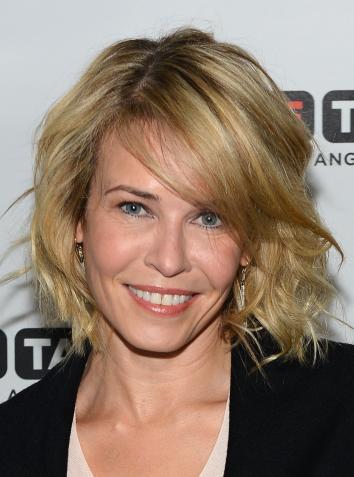While the TV industry is still getting its head around Netflix’s drop-a-whole-season-at-once model, Netflix today announced it will soon throw another programming curve: The online-only network has hired Chelsea Handler, the voluble and sometime vulgar host of E!’s Chelsea Lately, to create a new streaming-only talk show.
It’s not a surprise that Handler is leaving her current home—she’s been publicly badmouthing E! for quite a while now—but why go to Netflix? And why is Netflix confident it can get its viewers to do something it’s never asked them to do before? Rather than binge-watching a cliffhanger-rich series like House of Cards, it wants its members to stream a daily program that’s presumably meant to be watched within hours after it’s made. This distinctly novel approach has already been met with skepticism. Gawker declared that the deal is “doomed.” Vulture suggests that this could be Netflix’s “first big misstep,” adding that “some things are just too antiquated to try to modernize.”
As Slate’s podcasting chief, I have a different perspective. In effect, Netflix is going to be producing a video podcast—an online, on-demand, ongoing series. And judging from my experience, the move has more promise than people seem to realize.
The difference between a traditional late night show and Handler’s Netflix venture will be much like the difference between radio and an audio podcast. Both TV and radio are media you tend to join in midstream: You just turn on the box and let whatever’s on wash over you. Even in the era of DVRs, it doesn’t make much sense to record The Tonight Show at 11:35 pm. Who’s going to stay up even later just to avoid the ads when what they’re looking for is simply a pleasant glide path to dreamland?
But streaming video and podcasts are opt-in media. You have to figure out how to find what you’re looking for through menus and search, and then determine which tiresome series of buttons you need to push to get your reward. We podcasters rhapsodize about the day when playing our shows will be as simple as turning on a radio. (We hopefully predict that day is just a few years from now; we’ve been predicting that for the last decade). Netflix, I’ll grant you, is easier.
Yet even with the technological hurdles of podcasting, Slate last month debuted The Gist, a new daily news and culture show released each weekday evening. Frankly, we weren’t sure what the appetite would be for daily podcast, and whether people would seek it out for their evening commutes. But it’s performed extraordinarily well—quickly becoming Slate’s most downloaded podcast—and a lot of listeners tell us they are downloading it in the hours just after it’s released. (And, to those Gist fans on the east coast, yes, we are trying to get it out a little earlier.)
I think this bodes well for Handler and Netflix. Media consumers, especially younger ones, are getting used to navigating through apps and login screens to receive the shows they like. And of course, Handler herself will no doubt make full use of the Internet’s lack of FCC decency regulations. Will the show be good enough to keep people opting in night after night? That’s another question. But to my mind, it’s the only one.
